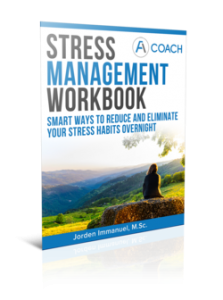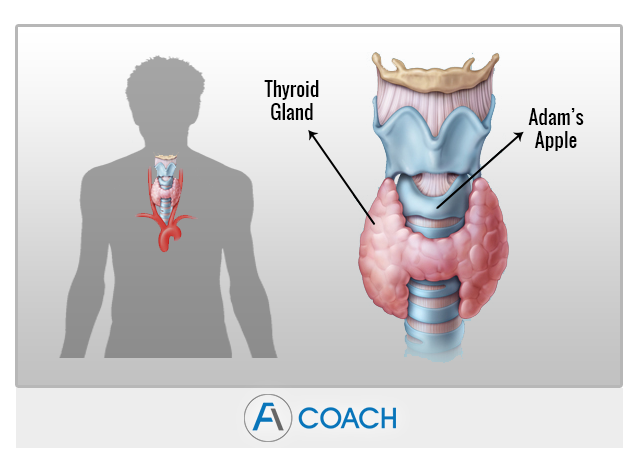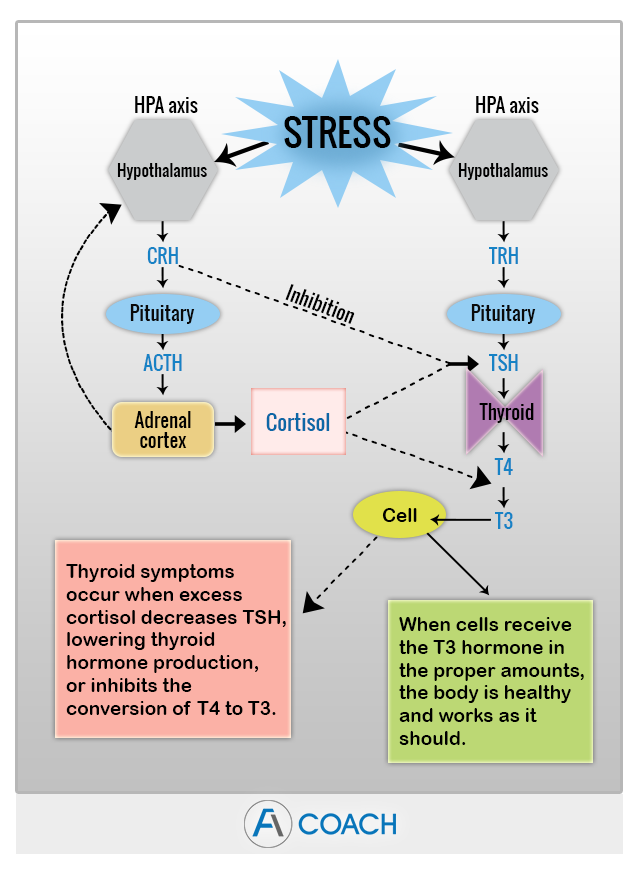Looking for help with Stress? Grab your FREE Stress Management Workbook today!

Common Differences Between Adrenal Fatigue Differences & Hypothyroidism ([6.http://www.pharmaceutical.co.nz/adrenal-fatigue-vs-hypothyroidism]),([7.https://www.drlam.com/articles/adrenalfatiguevshypothyroidism.asp]):
|
Adrenal Fatigue
|
Hypothyroidism
|
| Fatigue: early morning & mid-afternoon |
Fatigue: all day long |
| Feels worse in the morning & best after 6pm |
Feels relatively same all day long |
| Body temperature low if severe |
Low basal body temperature |
| Sensitive to cold |
Intolerance to cold |
| Hair loss: in men on lateral calf |
Hair loss: scalp, brows |
| Mild constipation, often alternates with diarrhea |
Stubborn constipation |
| Normal eyebrows |
Loss of outer 1/3 of eyebrows |
| Stamina varies, often within day |
Can’t increase stamina |
| Depression more intermittent |
Depression mores constant |
| Hypoglycaemia, especially under stress |
Hypoglycaemia not as marked |
| Diurnal energy patterns |
Energy more constantly low |
| Cravings for salt or salty foods, or high fats, with protein & caffeine |
Cravings for sweets, refined CHO’s or high energy food that don’t require digestion |
| Addition of salt improves symptoms |
Addition of salt doesn’t change symptoms |
| Frequently tired at 9.30pm, but can push themselves through |
Crashes by 9.30pm at night |
| Second wind at 11pm is frequent |
No second wind at 11pm |
| Often feels better if can sleep until 9am |
Time they get up makes no difference |
| Cardiac: can have lower volume & weaker contraction if severe |
Cardiac: bradycardia most common sign |
| Weight gain: not always present could be loss instead can be calorie related |
Weight gain (not always present & not related to calorie intake) |
| Weight distribution: abdominal apron |
Weight distribution: hips & thighs |
| Weight loss: usually decreases gradually with exercise, decreased stress & Carbohydrate intake |
Weight loss: very difficult without treatment |
| Menstruation: heavy onset, often lighter by 3-4th day or may skip 3-4th & return on 5th day |
Menstruation: heavy & longer |
| Estrogen/ progesterone therapy may help some but doesn’t change Adrenal Fatigue symptoms |
Estrogen/ progesterone therapy may increase symptoms if thyroid is not treated |





